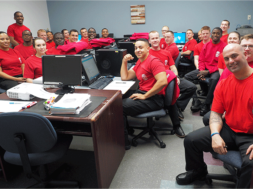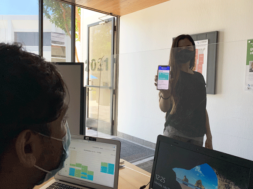
Déjà vu for Career Colleges – Proactively Preparing for the Attack!
Interview with Vince Norton and Jean Norris, Norton Norris, Inc.
Jenny: The two of you have been working in higher education for many years and have witnessed patterns and themes. With the current state of the economy and high unemployment rates, what do you see shaping up for career colleges?
Jean: With our nearly 75 combine years we have seen a lot and there’s good and bad news. The good news is that career colleges provide the training and programs that many students will be seeking in the near future. A recent study from Strada Education Network highlighted mindset shifts as a result of COVID-19 indicating trade schools, online colleges and community colleges as preferred choices to enroll. Further, three out of five adults intend to pursue non-degree or certificate training to reskill or upskill.
As you can imagine, this doesn’t make everyone happy.
If fighting an invisible enemy like COVID-19 isn’t enough, career colleges are in for another round of battles as special interest groups line up to take their shot.
The perfect storm was already brewing with ideological battles over the tax status of a career college, a focus on questionable marketing and recruitment practices, battles over 90/10, VA benefits, borrower defense to repayment and more. Now over a billion dollars of stimulus dollars went into the pockets of career colleges. All of this just adds fuel to the fire for those already fighting the “evil for-profits.”
Vince: When you look at the patterns, this very much reminds me of 2010 when the GAO (Government Accountability Office) under the chair of the Health Education Labor and Pensions Committee (HELP), Senator Tom Harkin, launched an all-out attack on career colleges. Albeit many of the big publicly traded schools are now out of the picture, there remains an idealism over the non-profit/for-profit motive. That is something that can’t be changed easily.
Secondly, if you recall, career colleges were doing pretty well back then given the 18-month recession. And although this recession is different, we are entering into an environment where plenty of people are going to be looking for jobs, finally deciding to change their career, or make themselves “recession-proof” for the future. The career college sector is positioned very well to serve those out of work and/or seeking new skills.
It’s also an election year. The idea of fighting on behalf of the “people” to “protect them” from “evil for-profits” plays very well in political messaging. Voters also seem to be attracted to messages around free college.
Jenny: What chatter are you picking up on that indicates a battle is coming?
Jean: Just recently, some very vocal, longtime opponents of career education said they are watching marketing and recruitment carefully – especially now. One article acknowledged that the recession will surely bring growth to this sector. That’s great news but then the authors go on to say this will surely lead to abuse since “they’ve done it before.” By the way, the individuals in this article were senior staffers for Senator Harkin.
In fact, the authors were the lead strategists behind the massive mystery shopping infiltrating admissions offices and chronicling abuses, misrepresentation and distasteful actions that Vince mentioned. This study is still used to this day against career colleges in political and media circles.
Another article posted on the Republic Report in April by David Halperin specifically says:
“If Gunderson and others in the for-profit college industry want additional support from Congress in the pandemic crisis, it is at long last time for them to stop mouthing platitudes and truly clean up the industry’s act. Stop using deceptive ads and scam lead generation sites. Stop engaging in coercive recruiting that targets the pain and shame of struggling Americans. Stop enrolling students in programs you know are not strong enough to let them succeed.”
We also know that Senator Dick Durbin and Elizabeth Warren aren’t fans of for-profit, career education. The long-standing hatred is well documented and most recently they also voted against allowing for-profit career colleges to receive federal stimulus funding.
Additionally, this is the seventh consecutive year that Durbin has gone directly to high school counselors, principals and teachers with a warning about for-profit career colleges. On April 30, 2020, his website provides a scathing viewpoint along with a list of career college closures and schools on heightened cash management (HCM).
He warns, “For-profit college enrollment skyrocketed during the Great Recession as those out of work turned to flexible, online options afforded by for-profit colleges for new opportunities… It was an era of widespread fraud and abuse by for-profit colleges – reaping huge profits for owners and investors and leaving students with worthless degrees that employers didn’t recognize and mountains of debt. And we’re already seeing signs that the industry is ramping up for a repeat – especially as online options are even more appealing in a time of social distancing.”
Jenny: I remember that Norton Norris was selected as the firm to do the research and write a position paper on the original Government Accountability Office (GAO) report. Can you tell us more specifics of what you found?
Vince: As you know the government sent secret shoppers to 15 colleges posing as prospective students. Our team spent nearly a week listening to 31 hours of recordings on Senator Harkins website and compared the recordings to the GAO Report. Their findings were divided into two major categories including “Fraudulent Practices” and “Deceptive or Questionable Statements.” The latter was subdivided into the following categories:
- Accreditation information
- Graduation rates, employment and expected salaries
- Program duration and cost
- Financial aid
- Other sales and marketing tactics
Of the 65 original findings documented by the GAO, we only found evidence for 15 findings and another 14 findings did not have enough information or recordings were missing. It was interesting that a number of their findings were actually misunderstandings about academic versus calendar years and basic information on higher education operations. Make no mistake though, there were some distasteful and blatant behaviors that earned a finding. Including egregious infractions like coaching on the financial aid form, inflation on outcomes – both placement rates and salaries, exaggerated promises of credit transfer as well as pressuring students to enroll.
The sector needs to be very aware of inflation in the above areas as it relates to overpromising. The watchdogs are particularly keen on these topics and overzealous admissions advisors may tend to paint a very bright picture in their effort to enroll students. And now that admission representatives are working in a remote or virtual environment, there may be a tendency to be more casual which can also present problems.
At the end of the day, even with our clarifications, the damage was done – and even the corrected report continues to be referenced by career college critics.
This is why it’s incredibly important to get it right this time around.
Jean: But secret shopping was only part of their attack plan. They also found disgruntled admission representatives to testify before the HELP Committee. Their statements of being forced to use hard core sales techniques, being under intense pressure to enroll anyone with a pulse, and poke at the pain of students – shocked many people.
Keep in mind that these infractions occurred in financial aid offices too with students being coached not to report cash on their FAFSA and to claim more dependents than they actually had. In fact, you can still view segments of these distasteful practices at the GAO.gov site or on YouTube.
We all know these orchestrated attacks contributed to hundreds of millions of dollars in fines and the closure of many schools and career colleges.
This is why we are here. We cannot let this happen again.
Jenny: The patterns are very similar to what we saw 10 years ago and could be repeated unless career college leaders do something differently this time. What do you recommend they do to hopefully prevent the attacks?
Jean: We can get ready for the next wave because we’ve been here before and hopefully leaders are motivated to not repeat the mistakes or oversights of the past. Let’s talk about how a career college can proactively prepare to avoid the scrutiny that is sure to come.
For starters, it’s essential that your admissions and financial aid teams are clear on expectations and acceptable behaviors. I’ve seen many professionals do the wrong thing, but their intent was exactly the opposite. There may be written policies and procedures but it’s the “unwritten ground rules” that get people and schools into trouble. In other words, there are rules that get followed and others that have been modified or ignored in practice.
Secondly, make sure they are trained using a compliant and legally endorsed methodology.
It actually was difficult for me to watch the admission reps videotaped by federal agents posing as students. The techniques they were using were actually things they were trained to do! Think about that. The admissions person was literally embarrassed on national tv, pulled into a federal investigation and may have lost their job due to what some trainer out there told them to do. I find that so disturbing and I still see admissions trainers promoting these distasteful, outdated and ineffective methods.
Today, we see so many career colleges using a mix of approaches depending on what school the prior manager came from. This is dangerous as well as ineffective. I believe an ideal admissions training solution should provide the following elements:
- Legally endorsed content aligned with DOE/accrediting agency admissions related standards
- Content on mission, vision, values, ethics and expected behaviors
- Various measurements and evidence of learning application
- Ongoing learning and development for refinement and continuous improvement
- Valid and reliable data showing efficacy and student satisfaction/student outcomes
- Ongoing oversight and inspection
Vince: Training is essential – but it needs to be “back stopped” with regular mystery shopping. It’s really the only way you know what’s said behind closed doors.
Our team conducts well over 3,000 shops annually, both on-ground and online for nearly 20 years. What we tend to see is bad behavior when representatives are not regularly shopped. In fact, the first round of shopping for most clients is downright painful, and almost always results in a termination or two. Management is typically shocked at the behavior of some of the best producers. But the good news is that with consistent “inspection” the behaviors change, and compliance improves greatly.
And let’s face it, wouldn’t you rather proactively find any issues before a government agent? Mystery shopping also provides evidence that your school is being diligent with inspection and self-regulation.
Besides, there are also a number of great findings that come from mystery shopping showcasing further training opportunities and best practices that can be celebrated!
Jenny: In closing, what advice would you give to those responsible for the well-being of students, staff and faculty?
Vince: Embrace transparency and make sure your team has the training and tools to be successful.
One best practice is to create/examine your talk tracks. What are your advisors saying about placement rates and salaries? Now that we don’t have GE disclosures, we are seeing a tendency for less regulated answers.
At the end of the day, operate the same way you did before GE regs went away. Reference compliant and up to date information on outcomes, program cost, financial aid, accreditation and transfer of credit.
Jean: Prepare your admissions team to be successful.
I’d be sure to review your admissions and financial aid code of conduct, and get a signature from each employee that they are fully aware, understand and embrace quality and ethical behavior.
Then conduct a review of all admissions materials including handouts, program information and your website.
It’s also helpful to create a FAQ – that includes approved compliant information and mandate that it’s included in every student interaction.
Finally, don’t just send them to a training workshop or webinar once in a while. Invest in their learning and continued development. I often hear that there isn’t time to train people because they’re so busy; but the ramifications can be devastating – as we’ve seen in the past.
Sources
Adams, Susan (April 30, 2020). For-Profit College Set to Collect $17 Million In Federal Stimulus Cash Is Sued for Predatory Practices. Forbes. https://www.forbes.com/sites/susanadams/2020/04/30/for-profit-college-set-to-collect-17-million-in-federal-stimulus-cash-is-sued-for-predatory-practices/?ss=education#3b0512917afc
Career Education Review (April 22, 2020). Warren, Durbin, Colleagues Push Education Department to Target CARES Act Funding to Public and Nonprofit Colleges, Not For-profit Colleges.
https://www.careereducationreview.net/2020/04/warren-durbin-colleagues-push-education-department-to-target-cares-act-funding-to-public-and-nonprofit-colleges-not-for-profit-colleges/
Halperin, David (April 15, 2020). Scam Websites, Promising COVID-19 Advice, Steer Students to Predatory Colleges. Republic Report.
https://www.republicreport.org/2020/scam-websites-promising-covid-19-advice-steer-students-to-predatory-colleges/
Murakami, Kery (April 17, 2020). New recession sets the stage for abuses by for-profits – critics fear. Inside Higher Ed https://www.insidehighered.com/print/news/2020/04/17/new-recession-sets-stage-abuses-profits-critics-fear
Smith, Matt (April 9, 2020). These for-profit colleges could reap up to $1 billion in federal bailout money. MarketWatch. https://www.marketwatch.com/story/exclusive-these-for-profit-colleges-could-reap-up-to-1-billion-in-federal-bailout-money-2020-04-08
StradaEducation Center for Consumer insights (April 23, 2020).
https://www.stradaeducation.org/wp-content/uploads/2020/04/Public-Viewpoint-Report-Week-5.pdf?utm_medium=email&_hsmi=87141913&_hsenc=p2ANqtz-_Mb561OHrHgieVj7VLO3EMe8TvpGIAWygbj_qPEJReVBvDpzKOtifvj4fpBE3TYV_2pYa8&utm_content=87141913&utm_source=hs_email
United States Government Accountability Office. Undercover Testing Finds Colleges Encouraged Fraud and Engaged in Deceptive and Questionable Marketing Practices. GAO-10948T: Published: Aug 4, 2010. Publicly Released: Aug 4, 2010.
https://www.gao.gov/products/GAO-10-948T
VINCE NORTON, prior to co-founding Nn, spent three years in banking as a consumer loan officer before shifting his focus to traditional and vocational higher education. His mission was always to generate additional enrollments – which he accomplished with solid marketing campaigns and careful attention to conversion metrics. In the last 20 years Vince has become a trusted expert on mystery shopping, sales training and inquiry generation. He believes strongly in using traditional media to drive traffic to digital properties and continuously measuring and benchmarking performance.
Contact Information: Vince Norton // Managing Partner // Norton Norris, Inc. // 312-218-3991 // Vince@nortonnorris.com // https://nortonnorris.com/
DR. JEAN NORRIS is an award-winning author, speaker and advocate for ethical sales processes. As a 31-year veteran of the higher ed sector, her experience as an admissions director, dean of admissions, vice-president of marketing/enrollment management and academic dean has prepared her to serve hundreds of institutions and thousands of professionals.
Jean is the developer of the award-winning and legally endorsed EnrollMatch® Admissions Training Program (featuring the 5 Factors of FitSM). Her work to continuously advance tools to support admissions and serve students led to the creation of the MyGuidance Coach® (MGC) software (also featuring the 5 Factors of FitSM).
Dr. Norris actually began her own educational career in a 10-month medical assisting diploma program and went on to earn a BA in Management, an MA in Communication and Training and a Doctor of Education in Organizational Leadership. Jean is also a Licensed Master Neurolinguistic Programming (NLP) Practitioner.
Norris serves as managing partner/CEO at Norton Norris, Inc. a full service agency specializing in marketing, mystery shopping, faculty and staff training and enrollment solutions. Jean also serves as the Allied Chair for Career Education Colleges and Universities (CECU), Chairman of the Board for the Association for the Advancement of the College Admissions Profession (AACAP) and a Board Member for the Juvenile Diabetes Research Foundation (JDRF).
Contact Information: Dr. Jean Norris // Managing Partner // Norton Norris, Inc. // 312-262-7402 direct // Jean@nortonnorris.com // https://nortonnorris.com/












